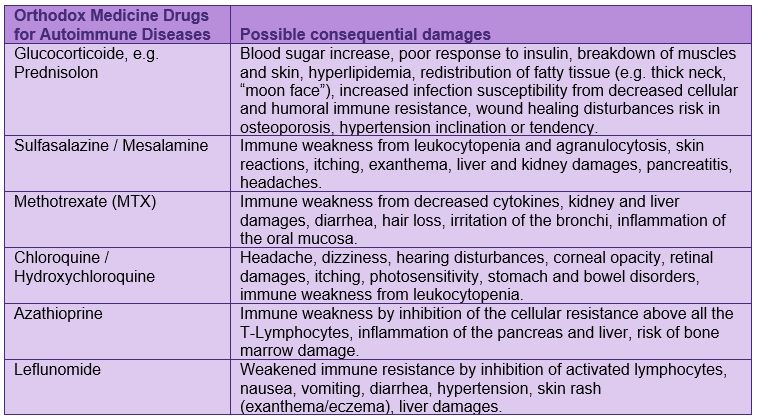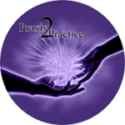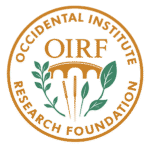Homeopathy
On the Way to Integrative Medicine
The Role of Natural Medicine in Connection with
the Weak Points of Orthodox Medicine
The head of the Klinik für Naturheilkunde, Prof. Dr. med. André-Michael Beer was asked during an interview whether he has a vision for natural medicine. His response: “He wishes an integrative medicine, in which natural medicine and school [orthodox] medicine are united on eye level without rivalry”. [This is] also worthwhile in my opinion – but, we are far away from such a position for natural medicine. Nevertheless, there is a way that could lead relatively quickly to this goal. The following article contains directions.
Dissatisfaction with 'medical' medicine increases. An indicator is the growing popularity of natural medicine treatments [1]. The demand especially for homeopathy increases, which is all the more astonishing when recently the effectiveness of the globules has been doubted, or absolutely denied in publications and the media. The verdict is particularly justified on the argument that the remedy contains only a little substance and is absolutely insubstantial from a certain potency. Thus, a homeopathic therapy can at most have a placebo effect [2].
Practice Experience: Autoimmune Disease Increase
I specifically experience the dissatisfaction with orthodox medicine in my practice. Remarkably many patients report they were getting worse, but the physician could not find anything serious. The blood picture that some patients bring actually gives no indication of serious illnesses that could explain the general symptoms of exhaustion, fatigue and sleep disturbances. The subsequent examination usually unearths an autoimmune disease and/or strong systemic fungal infections. Particularly common, Morbus Crohn, Colitis ulcerosa, gastritis A, autoimmune pancreatitis, muscular rheumatism and systemic Lupus are found under the autoimmune diseases. Recently, cases of Myasthenia gravis (muscular weakness) increased. What can be the reason for the fact that such diseases are frequently not searched for or are not found? It is worth considering:
I specifically experience the dissatisfaction with orthodox medicine in my practice. Remarkably many patients report they were getting worse, but the physician could not find anything serious. The blood picture that some patients bring actually gives no indication of serious illnesses that could explain the general symptoms of exhaustion, fatigue and sleep disturbances. The subsequent examination usually unearths an autoimmune disease and/or strong systemic fungal infections. Particularly common, Morbus Crohn, Colitis ulcerosa, gastritis A, autoimmune pancreatitis, muscular rheumatism and systemic Lupus are found under the autoimmune diseases. Recently, cases of Myasthenia gravis (muscular weakness) increased. What can be the reason for the fact that such diseases are frequently not searched for or are not found? It is worth considering:
- Shortage of time: the average time allowed for a general practitioner to complete the tasks for National Health Insurance patients lies between eight and twelve minutes [3].
- The rarity of many autoimmune diseases according to the textbook. Thus, the incidence of Morbus Crohn and Colitis ulcerosa 6, systemic Lupus 5 through 10, Myasthenia gravis 3 and rheumatic polymyalgia amounts higher in ages 20 through 40. Incidence: New illnesses per year and 100,000 residents in Germany, or more precisely Europe [4]. The statistical average values are often not relevant for my practice. Patients with initially inexplicable severe general symptoms who do not have an unrecognized autoimmune disease are in the minority. Presumably, autoimmune diseases increase generally in the statistics.
- As far as systemic fungal infections are concerned, just like I hear from my patients, many physicians are thus of the view that they are relatively rare and could mostly occur in immune weak persons. Also, in the medical literature you find this theory in which the immune deficiencies [like] HIV infections, implants, chemotherapy, cancer, organ transplants and an immunosuppressive or intensive medical treatment are mentioned as the cause [5].
Actually, the majority of my fungus infected patients are immune weakened, however most predominantly because of a massively disturbed intestinal flora. Nevertheless, as I likewise learn from patients the intestinal microbiome is hardly or not at all considered by physicians, although it increasingly comes into focus in medical research and literature [6]. In a minority of cases, I can explain the immune disturbance on physician treatment with immune suppressive medications, on permanent stress or on Cushing's disease.
Practice Experience: Disappointed Patients
With the second group of patients who come into my practice because they are dissatisfied with orthodox medicine, it is about sick people with autoimmune diseases or allergies proven by their physicians. They are disappointed with the results of the orthodox medical treatment and/or they suffer from side effects of the prescribed medications. Of the autoimmune diseases by far they mostly have rheumatoid arthritis. In a few cases the diagnosis they bring with them is systemic Lupus, chronic inflammatory bowel illness (M. Crohn or colitis) or Bechterew's disease.
Actually, through interventions at different places of the immune system orthodox medicine can only lessen autoimmune diseases, tone down attacks, reduce their frequency, slow down the progression of the disease and at best cause a temporary remission [7]. The side effects of the medications used can be serious. Possible accompanying damages from often prescribed medications are compiled in Table 1 [8].
 Table 1: Orthodox medical treatment of autoimmune diseases.
Table 1: Orthodox medical treatment of autoimmune diseases.
Some patients flatly refuse treatments with such and similar medications after they have been enlightened by the doctor about the side effects or have read the package instruction leaflet, and therefore search for help from natural medicine. Others have been treated by orthodox medicine for a long time and would like to switch over to natural medicine or take a complementary homeopathic remedy.
The antihistamines often used for allergies are only able to tone down the known allergy symptoms and provoke the most significant side effect of fatigue. Furthermore, oral dryness, stomach and bowel discomfort as well as increased appetite can appear [9]. Allergic patients seek a natural remedy that drastically helps and causes no accompanying damage.
Practice Experience: Persistent Infections
The third small group of advice- and help-seeking patients in my practice have a proven virus infection against which orthodox medicine has no adequate medications, often an Epstein Barr infection. Or, it concerns patients who because of the side effects do not want to take antibiotics over and over again against increasingly occurring bacterial infections.
Cause Oriented Homeopathy
If you summarize the described practice experiences taking into account the orthodox medications, the weak spots of orthodox medicine thus especially lie in the following illness fields:
- Autoimmune diseases
- Allergies
- Infectious diseases, particularly systemic fungal infections and virus infections.
Can natural medicine step in here? Yes. On the one hand it does not conduct ten-minute medicine, but rather takes time for the patients which of course must be paid. On the other hand for example, it offers Phytotherapeutic, Spagyric and Homeopathic efficient and damage free treatment possibilities. Especially homeopathy in so far as it starts with the disease causes, it delivers a) clearly better treatment success and b) a side effects free therapy. Furthermore, it takes into consideration the healing complications that can lie for example in an intestinal dysbiosis or a pollution burden. Thus, the natural healing principle of holisticness is taken into account. Specifically, the treatment develops within the scope of cause oriented homeopathy as follows:
Autoimmune Diseases
Autoimmune diseases are triggered by a corresponding genetic disposition. [Such a disposition] can also be acquired epigenetically during the course of life, most predominantly through infections of the immune organs (bone marrow, thymus, lymphatic system). Thus, the immune system is induced into the false reactions known in orthodox medical literature. The selection mechanism that normally switches off the intolerant defense cells is disturbed or weakened as a result of the immune infection, and autoantibodies and autoreactive cytotoxic T-Lymphocytes achieve large numbers in the body. In any case this has been shown in a study with 36 patients suffering from various autoimmune diseases. In several hundred subsequent practice cases, this cause-explanation has been confirmed. In a small minority of cases permanent stress was the triggering cause. Cause oriented homeopathy has remedies at its disposal in immunological triggered cases (as mentioned the most prevailing majority) that can reliably and damage free switch off the primary cause (immune infection) as well as the secondary cause (autoantibody or autoreactive T-cells) (see Table 2).
 Table 2: Homeopathic remedies for the treatment of autoimmune diseases
Table 2: Homeopathic remedies for the treatment of autoimmune diseases
With these remedies – to which there are alternatives – every autoimmune disease can be made to subside. Of course, it is possible that the disease flares up again, especially if the patient contracts a new immune infection. The treatment must then be repeated.
If permanent damage has already resulted, the therapy pushes to its borders. For example, natural medicine possibly reduces [damage] with rheumatic joints, but it cannot be removed. In such cases orthodox medicine is in demand, for example, if strong pain exists or if a surgical intervention is necessary. Orthodox medicine is then in the role of a complementary medicine [10].
Allergies
Type I allergies, that make up 90 percent of all cases, are admittedly based on an overreaction of the immune system. The defense responds to intrinsically harmless substances like flower pollens, dust or certain food elements similarly as it does to pathogens. The overreaction is triggered just like the false reactions to autoimmune diseases from an immune infection. A genetic disposition, that can also have developed epigenetically, is a requirement. If a patient with an allergy inclination plus an immune infection gets in contact with an allergen, then – usually with the secondary contact – neurotransmitters, especially histamines, are distributed which relatively quickly provoke the known allergy symptoms, for example sneezing attacks, watering eyes, skin reddening and pain. Cause oriented homeopathy begins at the second and third link of the effect chain, that is at the immune infection and the symptom triggering neurotransmitters. Additionally, see an overview in Table 3.
 Table 3: Homeopathic treatment for Type I Allergies
Table 3: Homeopathic treatment for Type I Allergies
After a short time the allergic reaction will wear off with the treatment – as shown in Table 3 –and indeed regardless of the kind of allergens. There are alternatives to the mentioned remedies [10].
Infectious Diseases
Several remedies are available from cause homeopathy that reliably and damage free have an effect on all pathogen groups, thus also on fungi and viruses. Worth considering besides the preparations mentioned in Tables 2 and 3 are for example Drosera, Tanacetum and Jequirity. Generally recommended in maximum high potency (C1000 and higher), because they adapt flexibly with the severity of the diseases and the state of the patients.
Indeed, orthodox medicine has drugs against systemic fungal attacks (inner organs and tissues). Nevertheless, with longer intake these have clear side effects, for example on stomach, bowel, liver and kidney [11]. Also, orthodox drugs are available against some viruses (virostatic agents), however also with the risk of injurious side effects [12].
That orthodox medicine is best prepared against bacteria is seen with highly resistant germs. They can also have side effects, for example triggering allergic reactions and gastrointestinal complaints or liver and nerve damage. They almost always damage the intestinal flora (the intestinal microbiome) depending on the type of antibiotics and the duration of intake [13].
In so far as treatment prohibitions exist for non-medical practitioners [14], orthodox medicine alone is in demand, even if to gain control of the infection from its severity, or if the orthodox drugs are afflicted with the risk of not insignificant side effects, or even if only symptomatic measures are possible.
Although there are weak spots in orthodox medicine, their achievements are in relation to areas in which natural healing methods can offer little or nothing at all. The areas of excellence of orthodox medicine are especially:
- Emergency care including life threatening infections, intensive medicine
- Diseases which require operations or other interventions, for example artificial respiration, urinary catheter, heart pacemaker or dialysis.
- Diseases which require the application of vitally important endogenic substances, for example thyroid gland hormones or insulin
- Severe psychic ailments or degenerative diseases of the nervous system.
- Disease conditions which make the application of strong painkillers or other drugs necessary, for which in natural medicine there are no, or no equivalent, alternatives , for example hypertension drugs and cytostatics.
- Diseases which require accessories, for example hearing aids
- Treatment of rare diseases
- Diagnoses requiring highly technical expenditure, for example CT, PET-CT, MRT, difficult blood tests and genetic tests.
Results and Conclusions
Apart from the outlined creditable and partially admirable achievements of orthodox medicine, it has weaknesses in some areas, particularly in the vast areas of autoimmune diseases and allergies, less pronounced with infections. Here natural medicine can step in and take over joint responsibility. This would be a big step in the direction of an integrative medicine, as visualized by Prof. Dr. med. André-Michael Beer, Director of the Clinic for Natural Medicine (Catholic Medical Center Bochum), a medicine where "natural medicine and orthodox medicine unite at eye level without rivalry" [15].
However, the question arises whether a more demanding and state arranged education for natural medicine practitioners is necessary for the wide-scale takeover of that responsibility. In my opinion, such a well-founded necessity exists and supplies a further argument for the reform of the natural medicine practitioners' education, which is prepared at the moment at the national and regional levels [16].
Keywords: Autoimmune disease, allergy, infections, opinion, orthodox medicine, career politicians.

An Exclusive Translated Article for P2P Supporters
From the Monthly Publications of P2P
Published July 2020
From an article in CO’Med, Volume 26, April 2020
Machine Translation by SYSTRAN, Lernout & Hauspie, LogoMedia & Promt
Translation & redaction by: Carolyn L. Winsor, P2P Consulting
© Copyright 2020 Dr.rer.pol. Gerhard Honeck, Germany
Literature
Literature from the author or retrievable online under: www.naturheilkunde.de/co-med (Under “Die Aktuelle CO.med – Artikel und Themen”



